
Albers Brief Fall 2018
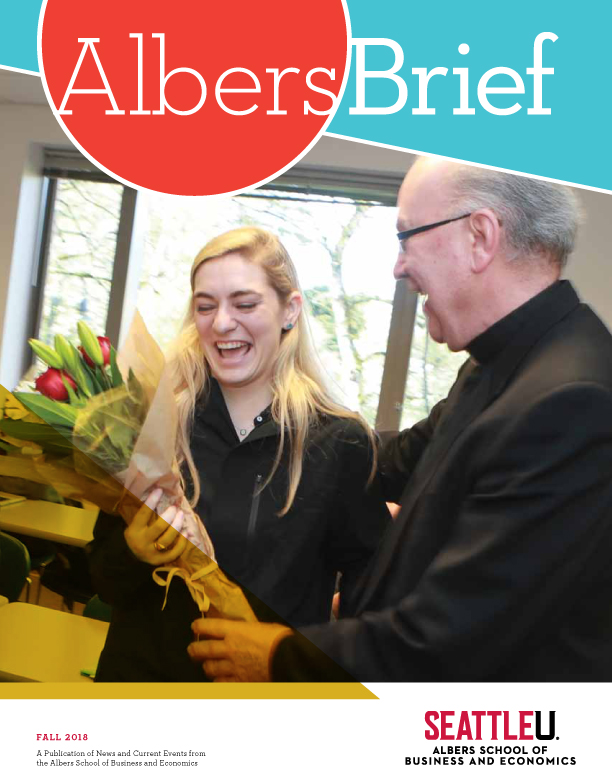
Dean's Message
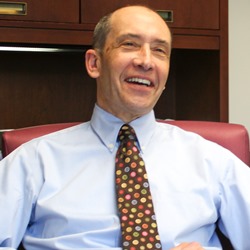
We are happy to welcome the Master of Sport Business Leadership (MSBL) program to the Albers School. Ranked 25th in the world by SportBusiness International, it only makes sense to have a program focused on the business of sport in a city with widely admired professional sports teams such as the Seahawks, Storm, and Sounders. We see many synergies developing between the MSBL program and rest of the Albers School.
When you look over the stories in this edition of the Albers Brief, one theme you will see is the global nature of what we do! It includes hosting a conference with participants hailing from five continents and 17 nations. It is evident in the research that Professor Quan Le is doing in Vietnam and the article that three faculty members wrote on how international study tours can contribute to a global mindset. It is obvious when you read the profile on one of our graduate students, Shraddha Nayar, who grew up in Dubai.
A second theme is our alumni and how important they are to our success. Ultimately, all business schools measure their success based on the contributions that alums make to society. Michelle Galvin is a successful entrepreneur and businesswoman, but she is also committed to helping Seattle University and the Albers School achieve greater levels of success. She serves on the university board of regents, providing her wise counsel, but she also hires our students and supports the university financially with company sponsorships and her own personal giving, including an endowed scholarship to enable students to study abroad. Amazing how the themes of “global” and “alumni” can’t be talked about separately! After all, Shraddha is now an SU alum!
Thank you for your support of the Albers School and Seattle University!

Joseph M. Phillips
Dean, Albers School of Business and Economics
Student Profile: Shraddha Nayar
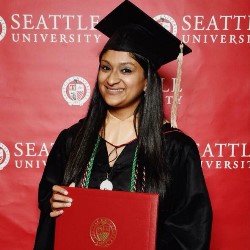
Studies Hard, Gives Back
New Albers graduate Shraddha Nayar, MSF ’18, has really been an international student for most of her life, but her time at Seattle University was the first time she thought of herself as one. Born in Mumbai, India, her family moved to Dubai when she began third grade, so that is home to her.
In Dubai, Nayar’s family lived in apartments where a majority of the residents were Indian. She also went to an Indian school and most of her friends were Indian, so there was no break in culture for her. And even though she went to undergraduate school at the London School of Economics (LSE), her classes were through an external study program in Dubai.
An aspiring actress in high school, Nayar showed her more practical side by majoring in accounting and finance at LSE. She knew she wanted to get a master’s/specialization soon, but wasn’t sure which direction she should take. She worked as an accountant after graduation, but it was when she moved toward finance that she began to do what she considered to be “more fun things,” such as calculating profitability performance, preparing the daily pro forma performance, and working on projections. “That’s exactly what I want to do,” she said. “Valuing a company from beginning to end is so exciting!”
It became clear to Nayar that she wanted to do a master’s in finance. During her research into programs in the U.S., she was impressed with the curriculum at Seattle U. She chose the Albers MSF program for three reasons:
- The flexibility of electives was very interesting, having come from a highly structured undergraduate program. She liked that she would be able to explore a skill set outside her specialty. She was also impressed with the faculty and the news she read about Albers.
- The application process was the smoothest of all the schools to which she applied.
- The location was perfect. Her sister lived in San Francisco, so she would have family within reach.
According to Nayar, an Albers education was the right choice for her. It definitely lived up to her expectations. She can’t name a faculty member she didn’t think was knowledgeable, the faculty were always available for students, and she found the quality of education to be excellent. “I couldn’t ask for anything more than this,” she said. In addition, she found the students at SU to be competitive, which she appreciated. It made her time here challenging and pushed her to learn even more than she might have if that had not been the case.
Nayar, who loves to be “super busy,” was a welcome, constant presence around Albers. She took full advantage of her time at Seattle U, working in the Albers graduate programs department as a graduate assistant and for the Innovation and Entrepreneurship Center as a relationship manager. She also participated in many of the clubs on campus that related to being an international student and a graduate student, including working as an officer for a few of them. In addition, she volunteered on a number of projects, including the Search for Meaning, a Seattle U signature event. Her philosophy is, “If I’m doing something that in any way benefits someone else, then I go to sleep happy.” Nayar’s only regret is that she had to force herself not to join the Graduate Student Council board because she didn’t have the capacity for anything more.
Recently graduated, Nayar’s plan is to take the CPA (Certified Public Accountant) exam and then sit for the CFA (Chartered Financial Analyst) exam. She will also be looking for a job in corporate finance or business valuation. She would like to stay in the U.S. for at least a few years, but would be open to relocating outside Seattle if the best opportunity is elsewhere. And then there is always that desire to act…
Featured Faculty Research
Format Neglect: How the Use of Numerical Versus Percent Rank Claims Influences Consumer Judgments
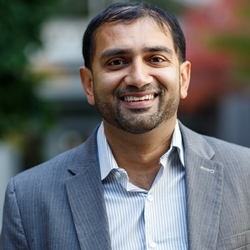
Author: Matt Isaac (Associate Professor of Marketing), with Julio Sevilla (University of Georgia) and Rajesh Bagchi (Virginia Tech University)
Marketers often claim to be part of an exclusive tier (e.g., “top 10”) within their competitive set. Although recent behavioral research has investigated how consumers respond to rank claims, prior work has focused exclusively on claims having a numerical format. But marketers often communicate rankings using percentages—such as “top 20%.” The present research explores how using a numerical format claim (e.g., “top 10” out of 50 products) versus an equivalent percentage format claim (e.g., “top 20%” out of 50 products) influences consumer judgments. Specifically, the research shows that when assessing ranking information, consumers neglect the position the item occupies in the ranking.
Across five experiments, the authors find strong evidence that consumers respond more favorably to numerical rank claims when set sizes are smaller (i.e., < 100) but more favorably to percent rank claims when set sizes are larger (i.e., > 100), even when the claims are mathematically equivalent.
Journal of Marketing 2018
Link to this article
How Leader Networking, External Monitoring, and Representing Are Relevant for Effective Leadership
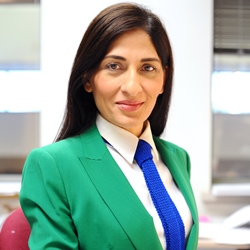
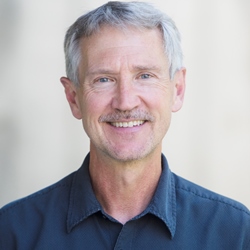
Authors: Rubiná Mahsud (Associate Professor of Management) and Greg Prussia (Professor of Management), with Cary Yukl (SUNY-Albany) and Russell Hassan (Ohio State University)
For this research, the authors assess the individual and joint influence of three distinct external leadership attributes on work unit performance and managerial effectiveness. The factors were Networking, Representing, and External Monitoring. After gathering data from subordinates of 233 managers in various types of organizations, the analyses indicated that External Monitoring and Representing are positively related to work group performance and managerial effectiveness. The effects of Networking depend on the leader’s use of External Monitoring and Representing. The findings provide additional evidence about the value of External Monitoring and Representing and new insight into how networking may improve workgroup performance and perceptions of managerial effectiveness.
Leadership & Organization Development Journal, Vol. 39 Issue: 4, pp.454-467
Link to this article
Do International Co-curricular Activities Have an Impact on Cultivating a Global Mindset in Business School Students?
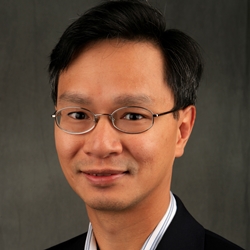
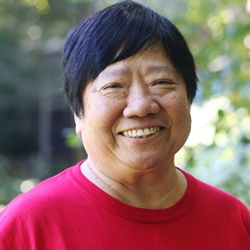
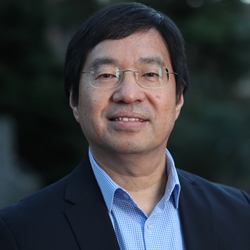
Authors: Quan Le (Associate Professor of Economics), Teresa Ling (Instructor in Economics), Jot Yau (Professor of Finance)
In today’s integrated global economy, business executives of multinational corporations are required to have a flexible global mindset in order to cope with the driving forces of globalization. Global market forces dictate that business schools graduate students with skill sets pertinent to functioning competitively in the ever-changing business environment. In this article, the authors conducted a survey of 165 students in the Albers School of Business and Economics at Seattle University to examine whether international co-curricular activities help achieve the goal of cultivating a global mindset in students. The results suggest that international co-curricular activities enhance students’ global mindset. Short-term study tours and international internships do have a significant impact on students’ global mindset as do other long-term co-curricular activities, which may cost more time and money. The authors recommend that short-term study tours be used as an alternative, cost-effective way to develop a global mindset in business students.
Journal of Teaching in International Business, Volume 29, 2018
Link to this article
Outstanding Student Achievements
Kate Hannick: 2018 Truman Scholar
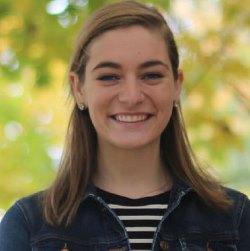
Double majoring in economics and public affairs, Kate Hannick has been named a 2018 Truman Scholar, one of only 59 selected this year by the Harry S. Truman Scholarship Foundation. This prestigious academic award is given to undergraduates who are preparing for careers in public service. Truman Scholarship winners receive a $30,000 scholarship toward graduate school and the opportunity to participate in professional development programs to help prepare them for careers in public service leadership. Hannick is the only university student in the state of Washington to receive a Truman award this year.
Katie Toyoshima: 2018 Washington State Champion of the Microsoft Office Specialist (MOS) Excel 2016 Exam
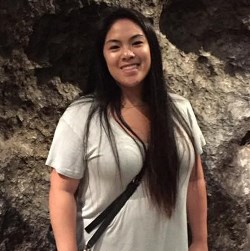
Albers junior Katie Toyoshima, a management major, was named the 2018 Microsoft Office Specialist (MOS) Excel 2016 Champion for Washington State and was invited to attend the national championship in Atlanta, where she placed 8th in her category.
Marlon Do Couto: 2018 Provost Award Winner
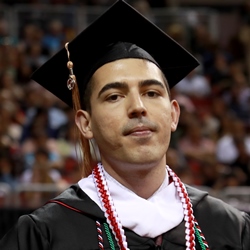
At the Seattle University undergraduate commencement ceremony in June, Albers finance major Marlon Do Couto received the Provost’s Award. This award goes to the transfer student with the top academic record. Do Couto transferred to SU from North Seattle College.
Alex Roldan: Drafted by the Seattle Sounders
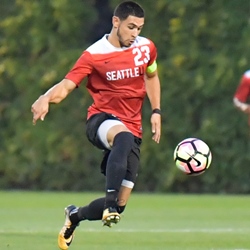
Albers management major Alex Roldan was selected in the first round of the 2018 MLS SuperDraft by the Seattle Sounders FC in February 2018. Roldan not only began playing for the Sounders immediately, but also graduated with his class at Seattle U in June. He was a four-year starter at Seattle University and is now teammates with his brother, Cristian.
Albers Executive Speaker Series
The Future of Transportation: The impact ACES (Autonomous, Connected, Electric, and shared vehicles) will have on society
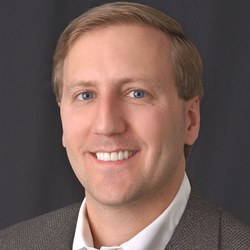
Bryan Mistele, President & CEO, INRIX
“Transportation has become completely fascinating,” said Bryan Mistele, co-founder and CEO of INRIX. Think Uber, Tesla, and Lyft; autonomous, electric, and shared vehicles; DiDi, Car2Go, and Reach Now. You can’t go a day without reading or hearing about something to do with transportation. There has been a complete revolution in transportation in the last 10 years, which can be tied to advanced technology and possibilities for alleviating traffic congestion, which leads to gaining back wasted hours sitting in traffic, reducing carbon emissions, saving fuel, reducing pollution, and making roadways safer.
An expert in the transportation industry, Mistele co-founded INRIX after leaving his executive position at Microsoft. INRIX, a leading provider of real-time transportation information, connected car services, and analytics worldwide, leverages big data analytics to reduce the individual, economic, and environmental toll of traffic congestion. Simply put, it connects cars to smart cities in over 60 countries around the world. Smart cities are nothing more than cities that put sensors on roads and cameras on street lights to gather information that will inform them on how to time their traffic signals, schedule public transportation, share information, and increase overall operational efficiencies. This helps improve both the quality of government services and the welfare of the citizens.
ACES are equipped with sensors that transmit data to the cloud, which is used to solve problems like traffic congestion. They contribute to society by helping reduce the number of individual vehicles on the road, reducing the need for parking spaces and increasing lane capacity. This all leads to increased safety on the roadways and a better quality of life for everyone.
Perspectives on Boeing and Lessons in Leadership
.jpg)
Kevin McAllister, President & CEO, Boeing Commercial Airplanes
Kevin McAllister, president and CEO of Boeing Commercial Airplanes, values the partnership that Boeing has with Seattle University and is impressed with the SU alumni who have made significant contributions to the success of Boeing over the years. In his position since 2016, McAllister already knows about the impact this partnership has made in the “redevelopment of our young leaders," he said.
Formerly President and CEO of GE Aviation Services, McAllister is very aware of the incredible legacy that Boeing has here in the Puget Sound region, as well as the importance of what Boeing does to connect the world. Not only does it drive trade through providing transportation for people and freight globally, but it is also a leader in using analytics and digital capabilities to remain competitive and provide efficiency and safety to its customers.
Investing in culture is a very important aspect of the success of Boeing, according to McAllister. “It’s how you simplify, how you create simpler organizations, simpler structures, simpler decisions, so that you have as many approvers as you really need and no more,” he said. With an effective culture, meetings are more focused, data is more available, and everyone is sensitive to how they behave with each other.
McAllister believes that being a great leader also means being a good leader. To him, this means that you should invest in your community and in education. You should not only prepare the next generation to lead, but also listen to them, learn from them. McAllister’s advice to today’s students:
- Covet learning and get ready to be a student for the rest of your life.
- Learn about what the needs of tomorrow will be.
- Understand that diversity is the greatest strength of any company.
- Do what you commit to do; follow up, execute on what you promised to get done, challenge paradigms.
Leading Beyond the Balance Sheet
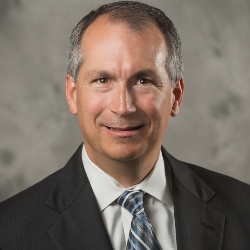
Benson Porter, President and CEO, BECU
Benson Porter, president and CEO of BECU, believes that, in addition to its financial expectations, purpose drives the long-term success of an organization. “It’s the purpose and passion that creates long term value in a company,” he said. One study done by Harvard indicates that purpose driven organizations outperform stock companies by 12 times. They found that customers are likely to switch brands if they find out a company isn’t socially responsible and millennials consider social purpose in choosing who they do business with.
When he joined BECU six years ago, Porter was surprised that he wasn’t handed a ‘values card.’ In his initial meetings with employees, he constantly heard about the importance of BECU’s members and the focus on putting the members first. But he didn’t hear about what the credit union stood for, its values. After soliciting suggestions, employees were asked to vote on what the company stood for. Over 90% of the employees participated and came up with five basic values:
- Putting our members first
- Doing the right thing
- Owning it
- Knowing it
- Being real
These values are now being used as a reference for benchmarking BECU’s performance, evaluating potential new hires, and promoting employees.
A company’s purpose and values are brought to the forefront when it is facing challenges, such as the public relations situations Facebook, Equifax, United Airlines, and Wells Fargo have faced recently. BECU has had its own challenges when it needed to go back to its values for direction. For example, when it decided to change its logo, long-term Boeing employees thought the ‘e’ in BECU was being de-emphasized, which to them meant that Boeing employees in the credit union were less important. This was not the case; in fact, the redesign was meant to be more inclusive of all its members now that a large portion of them are not Boeing employees. The broad membership agreed, and BECU’s current campaign emphasizes that. “The hardest job is made easy if the purpose is of great value,” he said.
Can’t attend a speaker event? Videos are available on the Albers You Tube channel.
Alumni Profile: Michelle Galvin
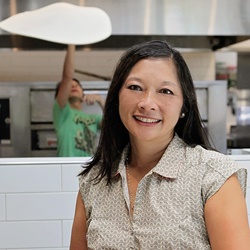
Impacted by Jesuit Teachings
Michelle Galvin, MBA 1998, has always had one goal… to be happy in her work. Whether it’s making coffee at Torrefazione Italia, raising her children, or working in the family businesses, she considers herself blessed to have the option of enjoying what she does.
Beginning her career path in the food industry in college, Galvin now oversees the marketing and accounting departments of her family’s businesses, Pagliacci Pizza and Macrina Bakery. After working various jobs in restaurants while earning her undergraduate degree in political science, she was hired as a barista at Torrefazione Italia, an Italian coffee company based in Seattle. Sometime later, the founder offered her a job in the office, where her responsibilities grew along with the company. It was after the company became national and merged with another coffee company, becoming Seattle’s Best Coffee, that the new owner suggested to Galvin that she would need an MBA to progress in her career. A regent at Seattle University at the time, the owner recommended the MBA program at Albers.
Galvin praises the Albers MBA program for being very well-rounded and teaching her how to use both sides of her brain simultaneously in her current positions in accounting and marketing. Particularly helpful to her was a marketing class she had with Chauncey Burke, who stressed that you “don’t have to know how to do every little thing to be excellent leaders and managers,” she said. “He said that the biggest part of being a great leader was knowing how to interact and manage people, not knowing how to do all the calculations. He was so right!”
Galvin continued to work at Seattle’s Best Coffee during and after her MBA program. She left the company after it was sold and taken public. She got married shortly after that and had four children. In the meantime, her husband and his business partner bought Pagliacci and then Macrina. When her youngest child entered first grade, Galvin went back to work in the family businesses.
In addition to preparing her for a successful career, “Seattle University had a great influence on me in many ways!” said Galvin. Catholicism and the Jesuit education philosophy resonated with her, and she was profoundly impacted by the teachings of justice and care of the whole person. In fact, a few years after graduating from Seattle U, Galvin was baptized into the Catholic Church. Her husband, who was raised Catholic, was confirmed at the same time.
Galvin uses Jesuit teachings in every decision she and her husband make at work. “Doing what is right guides our actions,” she said. Pagliacci was one of the first businesses to purchase green power despite the extra cost; Macrina was the area’s first LEED (Leadership in Energy and Environmental Design) certified bakery; they celebrate their employees’ birthdays and anniversaries; they are strong supporters of the communities in which they do business; every lease they negotiate and pricing discussion they have with vendors is based on compromise and finding a mutually beneficial solution.
Born on Maui, Galvin grew up in Chicago, IL, and Marysville, WA. She moved to Seattle to attend undergraduate school and never left. A strong supporter of the arts, she particularly likes ballet, theater, and music. “But,” she said, “I will attend any event that leaves me feeling inspired.” She is also a knitter and an avid reader who “can get so lost in a good book that nothing around me exists.”
Welcome to Albers, MSBL!
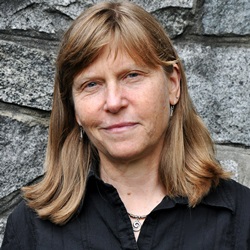
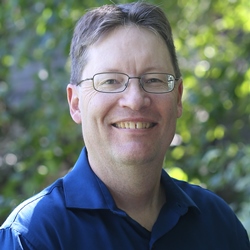
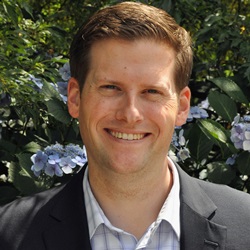
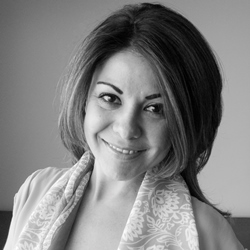
With a new name and the same excellent faculty and staff, the Master of Sport Business Leadership (MSBL) program joined Albers on July 1, 2018. Formerly known as the Master of Sport Administration and Leadership (MSAL), the MSBL moved to the Albers School of Business and Economics from the College of Arts & Sciences to more closely align with its emphasis on developing sport business professionals. It is designed to cultivate critical, creative, and integrative thinking through a focus on sport business analytics and leadership development, which will prepare our students to work in the rapidly changing and fast-paced sport context. Deep learning in these areas sets the MSBL program apart from other sport management programs.
Requiring 48 credits for completion, the MSBL program curriculum includes required core courses, electives, an internship, and a capstone project. As with the Professional MBA program at Albers, the MSBL is set up with a modified cohort design. Students spend their first year together taking the required courses, but have the option to customize their focus in their second year through the electives they choose.
Ranked #25 globally in 2018 and among the Top 40 globally for six consecutive years by SportBusiness International, the MSBL faculty are committed to providing an unsurpassed educational experience that prepares individuals to work in any sector of the sport industry. The MSBL curriculum forms the foundation of learning. Work experiences through internships or graduate assistantships make the learning real. Our sport industry relationships through the MSBL advisory board, partnerships with Seattle sports teams, Seattle U Athletics, Seattle U Recreation, and the Albers Mentor Program, and our alumni provide a network of support for students.
The MSBL program was designed for:
- Young professionals aspiring to work in the sport industry
- Early career sport industry professionals looking to advance their careers, make a lateral move, or develop sport business and leadership skills
- Professionals looking to make a career change
Moving to Albers with the MSBL program, we are happy to welcome MSBL Program Director Maylon Hanold, who oversaw the transition to Albers, Professor Galen Trail, Associate Professor Brian McCullough, and Graduate Program Coordinator Rose Kaser to the Albers family.
Albers Hosts International Jesuit Business Conference

Seattle University and the Albers School were pleased to host the 24th annual International Association of Jesuit Business Schools (IAJBS) World Forum and 20th Colleagues in Jesuit Business Education (CJBE) Annual Meeting July 22-24, 2018. The theme of the conference was Innovation for Sustainability. 180 attendees, representing 51 universities, came from 17 countries on five contents to the SU campus to attend paper presentations and workshops, and hear from inspiring leaders.
Keynote speakers at the conference included Alan Mulally, former president and CEO of Boeing Commercial Airplanes and the Ford Motor Company and Fr. Robert Spitzer, SJ, retired president of Gonzaga University. Fr. Michael Garanzini, SJ, Secretary of Higher Education for the Society of Jesus, also addressed the group.
Faculty Profile: Quan Le
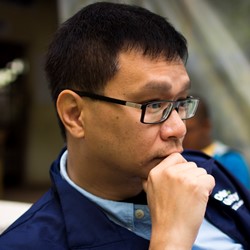
A True Global Thinker
Born in Vietnam, Albers Associate Professor of Economics Quan Le moved with his family to California in 1984. He wanted to be a pilot when he was young because he loved to travel and “meet people from different walks of life.” In the end, he found another way to travel and meet people by studying economics and focusing on economic development. After earning an undergraduate degree in Political Economy of Natural Resources at the University of California at Berkeley, Le earned a master’s degree in economics at the University of San Francisco and his PhD in economics at Claremont Graduate University in Claremont, California.
Having already worked at several universities in California, Le came to Seattle University in 2003 as a Visiting Assistant Professor at Albers, and the following year was hired for a tenure track position as an Assistant Professor of Economics. He was granted tenure and promoted to Associate Professor in 2010. Le was drawn to the mission of educating the whole person at Seattle University. He is personally committed to addressing critical issues challenging humanity today such as social injustice, discrimination, poverty, and the environment. He teaches macroeconomics and international trade at the graduate level, and macroeconomics, international economics, economic growth, and UCOR (university core classes) at the undergraduate level.
A development economist, Le’s research covers institutions, governance, global health, and entrepreneurship. His current research is on the TPP (Trans-Pacific Partnership) agreement, focusing on trade capacity building, global supply chain integration, and the performance of women-owned small- and medium-sized businesses. He is also researching the impacts of climate change on the global production of coffee. Le was twice selected to be a Fulbright Scholar—in 2005-2006 at the Vietnam National University in Hanoi and in 2015-2016 at the Fulbright Economics Teaching Program in Ho Chi Minh City. On both occasions, his research helped to support small businesses integrating into the global economy.
Tying in with his research on coffee, Le has been working with students on the Seattle University Fair Trade coffee project for the last five years. He advises the student-created and student-run nonprofit organization, MotMot Coffee (named for the national bird of Nicaragua), which buys fair trade, ethically sourced coffee from Nicaragua and sells it wholesale. Sales benefit the children of the farmers in the form of school supplies and transportation. “The project provides experiential learning opportunities for students on campus and abroad in Nicaragua and, recently, Vietnam,” he said, as MotMot looks to begin sourcing coffee from Vietnam. MotMot Coffee currently employs six student executives and fourteen interns.
While fulfilling his passion for working with students on international service-learning projects, Le sees the transformation students go through when they see poverty firsthand and can do something about it. It makes business students “not only aware, but also sensitive to poverty in developing countries,” he said. “As a result, they may approach business decisions with a greater understanding of their impact on poverty and society.” When he travels to Vietnam, Le always combines work and volunteer activities to support the marginalized communities there.
Le is active at Seattle U, serving as director of the International Business program since 2014 and also serving on the Fulbright Campus Review Committee since 2010. In addition, he holds the Eva Albers Professorship for 2016-19, and has been a fellow with the Albers Center for Global Business since 2006. He was formerly a faculty fellow with the Center for Environmental Justice and Sustainability in 2016-17.
When not working, Le enjoys hiking and the natural beauty of the Pacific Northwest. He is also a gardener and enjoys working on small projects around the house. An avid reader of books on Vietnamese history and culture, Le enjoys visiting cultural and heritage sites around the world.
Happening at Albers
Albers Executive Speaker Series
Events are held in Pigott Auditorium from 5:30-6:30 p.m. (unless otherwise posted). Free and open to the public.
Dean Allen
CEO, McKinstry
Thursday, November 1, 2018
Rick & David Cantu
Co-founders, CEO and COO, Redapt
Tuesday, January 15, 2019
Orlando Ashford
President, Holland America Line
Tuesday, February 19, 2019
Albers Career Center Events
Albers Career Nights
• Accounting | Finance | Economics | Business Analytics
Tuesday, January 29, 2019
6-7:30 p.m.
Optimism Brewery, Capitol Hill
• Management | Marketing | Global Business | Consulting
Tuesday, February 26, 2019
6-7:30 p.m.
Optimism Brewery, Capitol Hill
Networking reception for undergrads to connect with employers and Albers alumni.
SU Career and Internship Fair
Tuesday, February 12, 2019
11 a.m.-2 p.m.
Campion Ballroom
Alumni, please let us know if your company would like to recruit Seattle U students and we’ll get you plugged into our Career Fair. Also, if your company is already attending, we hope you will be able to attend as a company representative to connect with students.
Need more info on these events or help with career advising? Contact the Albers Career Center at 206-296-5687 or apc@seattleu.edu.
25th Anniversary of New Student Mentor Program
Friday, November 30, 2018
6-8 p.m.
Admissions & Alumni Building, Seattle University
Please RSVP to Teresa Ling at tling@seattleu.edu
Calling all New Student Mentor alums! Did you know that the Albers NSM program started in 1993? We are having a reunion of all NSM alums to celebrate this milestone.
Other Events
Graduate Programs Information Sessions
We hold information sessions for the Professional MBA, Bridge MBA, and Master of Accounting, Business Analytics, and Finance programs monthly throughout the year. Visit our Information Sessions schedule for upcoming dates.
SAVE THE DATE!
Albers Crab Feed
Friday, March 15, 2019
Early Bird tickets go on sale December 1st. www.seattleu.edu/crabfeed
Celebrate 25 years of Albers study tours!
Join us in Sansepolcro, Italy, where it all began.
September 2019
Details to follow.
Albers Alumni Board
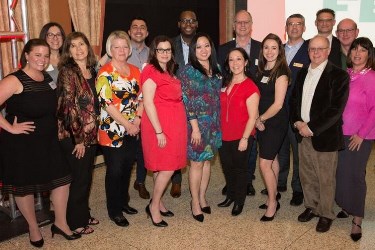
Dear Fellow Albers Alumni,
When you remember your time on the Seattle University campus and how your professors and fellow students changed you, do you realize that alumni were also essential to your Albers experience? Many of us are so grateful for our Albers education and how it has contributed to our successes that we have chosen to give back in service to Albers and Seattle U.
There are many ways to get involved and contribute to the university. Share your expertise with our current students as a mentor or speak in a class; serve on one of Albers’ 13 advisory boards; join the Albers alumni board to deepen your commitment to Albers while representing your fellow alumni. Shorter opportunities include serving as a judge in the Harriet Stephenson Business Plan Competition, participating with the Seattle U community in the Day of Service, or volunteering during the new student orientation. The possibilities to reconnect are endless!
As Albers alumni, we enrich the lives and careers of Albers graduates by providing friendship, connections, and resources. We are committed to growing a community of engaged alumni and business leaders. Whether it’s for an afternoon or a longer time commitment, I’d love to have you join me!
Mariam Abarientos, BABA Accounting, 2004
President, Albers Alumni Board
mariam.abarientos@gmail.com
Alumni Board Members
Mariam Abarientos, BABA 2004
Almie Borromeo, BABA 2003
Emily Daniel, BABA 2011
Walter (Syd) Dawson, MBA 2003
Anthony (Tony) Goodwillie, MBA 2004
Michael Hart, MBA 1998
Scott Huber, MBA 2005
Craig Maturi, MBA 2003
Jason McGill, BABA 1998, JD 2001
Eileen Olson, MBA 1994
Eric Osnes, MIB 2003
Jonathan Parsay, BABA 2016
Jennifer Richards, MBA 2000
Megan Robinson, BABA 2002
Sharon Sidoine, MIB 2003